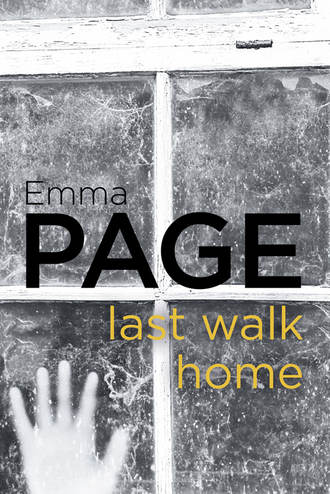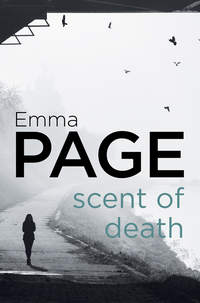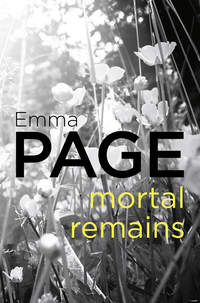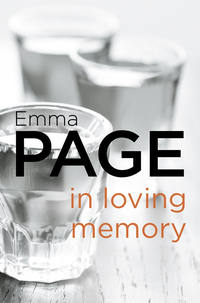
Полная версия
Last Walk Home
And Carole always had plenty of money, was always happy to pay for the steak dinners and wine, tickets for a show, drinks at a club.
‘Then if you won’t come, I think I’ll go over to Longmead on my own,’ Derek said. ‘I’ll ask Janet what she’s going to do about the holidays. I’ll explain that you’re upset she hasn’t written – ’
‘Don’t you dare!’ Lisa said with force. ‘I will not go running after her and I won’t have you going running after her either!’
‘I don’t for one moment think she’d see it like that,’ he said mildly. He gave a joking smile. ‘Of course she may have more ambitious plans for the holidays, she may be going off on a luxury cruise.’
She could certainly afford it. She’d been teaching for seven years now and she was the type to save. She’d been left some money in her father’s will – a sore point with Lisa who’d been left nothing; when her father breathed his last he had no idea that he’d begotten a second child.
Mrs Marshall made her will twelve months before she died and she had divided her estate between her two daughters with scrupulous fairness. The house and its contents were left to them jointly and her investments were split in two, Janet’s share to be paid over without delay as she was already of a sensible age, but Lisa’s to be withheld till she was twenty-five.
‘Promise me you won’t go over to Rose Cottage,’ Lisa insisted.
He moved his shoulders. ‘All right then, if that’s what you want.’
She sank back against the pillows with a satisfied air. ‘I’m hungry,’ she said suddenly, like a child.
‘I’ll make you some breakfast,’ he offered. ‘I’ve plenty of time. What would you like?’ He removed the little glass from the tray and set it down on the bedside table.
She put out a finger and touched the rosebud. ‘What a pretty colour.’ She gave him a delicious dimpled smile and he had a sudden sharp memory of North Africa, the golden idle days, the starry, scented nights. ‘I’ll have some toast and scrambled eggs,’ she said. ‘Some of that lime marmalade. And lots of coffee.’
‘I’m yours to command, Princess.’ He bent down and kissed her, picked up the tray and went briskly down again to the kitchen. The bills were still on the table but he gave them barely a glance as he swept them up into a pile and thrust them back into the drawer of the dresser.
CHAPTER 2
The morning session at Longmead school ended at noon. At five minutes past twelve Janet Marshall walked up Mayfield Lane and pushed open the little wooden gate of Rose Cottage. A trellis brilliant with the full flush of pale pink roses arched over the gate, scenting the air with their delicate perfume. She went up the path to the front door which was exuberantly garlanded on either side with great swags of climbing roses, red and white. She took a key from her shoulder-bag and let herself in.
The cottage was a good two hundred years old; it was small and set well back from the lane, a situation that gave it plenty of privacy without making it in any way isolated. It had a long narrow garden in front and an even longer strip at the back. The cottage belonged to Oswald Slater, the owner of Mayfield Farm, and stood upon his land. It had been allowed to lie empty for many years and had fallen into sad disrepair, but after the spectacular rise in property values in recent times Slater had considered the dwelling worth restoring and modernizing, and it was now a comfortable little residence with a new lease of life ahead of it. It suited Janet very well, standing as it did only a couple of hundred yards from the school.
She hung her bag on a hook just inside the front door. The tiny hall led into the single living-room which was simply and pleasantly furnished with pieces she had brought from Ivydene, pieces she remembered from her childhood in Ellenborough; they gave her an agreeable sense of continuity and tranquillity.
She switched on the radio which began to play light music, but she gave it no more than a fraction of her attention as she set about preparing her lunch.
She shook out a clean cloth and put it on the table in the centre of the room. She took out a jug of goat’s milk, butter and cheese from the fridge, reached down a beaker from the open dresser and brought a tin of crispbread from the pantry. At the sink she carefully washed a fine Cos lettuce she had grown in the garden and made it into a salad with cucumber and tomatoes she had bought on her Saturday trip into Cannonbridge. All her movements were quick, neat and methodical.
Before she sat down to eat she crossed to a small desk that stood against one wall and took out some opened letters. She began her lunch, looking over the letters again as she ate, frowning as she glanced through them. One letter was untidily written in Lisa’s small backward-sloping hand. ‘I’ve been expecting to hear from you,’ Lisa wrote. ‘To say when you’re coming to stay.’ To spend a couple of weeks acting as confidante and general dogsbody, Janet thought without enthusiasm; she’d had more than enough of that in her life.
Her father had died when she was ten years old and her mother, never the most independent and strong-minded of women, had immediately cast Janet in the role of man of the family. Her childhood seemed to end overnight. Her mother took to discussing every problem with her – and there was an endless succession of problems; Janet was called on to offer advice, weigh up situations, make decisions.
She sighed and glanced up from the letter and her gaze fell on a picture over the mantelpiece, a landscape, one of half a dozen watercolours on the cottage walls, executed by her father with considerable skill. He had owned and run an artists’ supply shop in Ellenborough and had cherished artistic ambitions of his own.
Janet resembled him in appearance, unlike Lisa who took after their mother. Janet was tall and had an exceptionally fine figure, slim and supple. Her head was set with particular grace on a long slender neck; her skin was a delicate olive and her large eyes a clear light hazel. Her naturally curly hair, thick and dark, was cut short and covered her head in close tendrils.
She stood up and took an apple from the bowl on the sideboard, and began to pace about the room as she ate it. She was strongly tempted to let Lisa get on as best she could with the life she had so defiantly chosen for herself. But then again, a young girl in her first pregnancy, no mother to turn to . . . She paused by the table and took a long drink of the delicious goat’s milk, creamy and icy cold. It was difficult to break the habit of shouldering responsibility, she had acquired the habit so young and had practised it so long.
After her father’s death her mother had put the shop up for sale, together with the house where they had been living; the house stood on the outskirts of Ellenborough. ‘What would you think of our buying a larger house and taking in lodgers?’ she asked Janet. Mrs Marshall rather inclined to the idea of businessmen, preferably transients, with whom it would be possible to preserve some distance. ‘I’m not a bad cook,’ she added on an increasingly hopeful note, ‘and I know you’d help me all you could. Do you think we could manage?’ After a semi-sleepless night Janet had decided they could manage and a search was immediately put in hand for suitable premises near the business area of Ellenborough.
For the next twelve years Mrs Marshall – with Janet’s unflagging assistance – did succeed in making a living for the three of them.
Janet worked hard at school – as well as at home – and did well. Her serious manner and responsible attitudes suggested teaching as a career and when she was eighteen she began her training. There was a good college in Ellenborough and she was able to attend as a day student. She would much have preferred to live in but there was no question of that, she couldn’t leave her mother to battle on without her. All during her training she carried the double load of her studies and her duties at home. Fortunately she was strong and healthy but by the time she had finished her training her mother’s health, never very robust, was beginning to fail.
‘I’ve had enough of hard work,’ she told Janet. ‘And enough of Ellenborough. I’d like to sell up, go and live in some quiet, peaceful place and take things easy.’ Janet was delighted at the thought that they might at last be about to bid goodbye to the long procession of business-men, and she rather liked the idea of teaching in a country school.
She found her first post at Stanbourne and as soon as she was appointed set about finding somewhere for the three of them to live. ‘I know I can leave it entirely to you,’ her mother said with long-justified confidence. ‘I’m sure you’ll find a house that will suit us all very well.’
In a short time Janet found Ivydene, a convenient bus-ride from Stanbourne and close enough to Cannonbridge for Lisa – at that time eleven years old – to be able to go in to school there every morning.
The Ellenborough house sold for considerably more than it took to buy Ivydene and Mrs Marshall invested the balance on the advice of her bank manager. And as Janet now had a salary coming in they were able to manage comfortably without lodgers and Mrs Marshall could at last put her feet up and take it easy.
A pity she wasn’t spared longer to enjoy her leisure, Janet thought with a sigh; her mother had had a mere half-dozen years before a stroke took her off.
She picked up another letter and glanced through it, pursing her lips in thought. It was from Alison Collett, a friend of hers from the day they’d first met at the age of five in the playground of the Infants’ school at Ellenborough. They’d sat side by side in the classroom, had gone on to the same secondary school, trained at the same college.
Alison had married a couple of years after qualifying and was no longer teaching. She lived now at Chalford Bay, an old-fashioned seaside resort some eighty miles from Cannonbridge. Her husband was a planning officer with the local authority and they had two small children.
‘When are you coming to stay?’ Alison asked in her letter. ‘Any time before September will suit us. Just pick up a phone and tell us what train to meet.’ Janet sat for some moments considering the idea, a good deal more tempting than a stay at Ivydene with the demanding and capricious Lisa.
She got slowly to her feet, still pondering; she began to clear the table and wash up the lunch things. The radio emitted the time pips and she switched over to hear the news; she rarely bought a paper. As she listened she dried the crockery and put it back on the dresser, then she carefully and neatly wiped over the painted surfaces of the kitchen. When it was all finished to her satisfaction she unlatched a door at the other side of the room and went up the narrow winding staircase to the bedroom.
She opened the wardrobe and looked through the garments hanging from the rail, she pulled out the drawers of a chest and glanced through blouses and sweaters. There were a couple of suitcases on top of the wardrobe and she stood on a chair to reach one down. She dusted the case and took the opportunity to run her duster over the other and also over the top of the wardrobe, then she moved the chair a couple of feet and gave a thorough dusting to the lampshade hanging from the middle of the ceiling. She stepped down again and glanced at her watch – time she was getting back to school. She returned the chair precisely to its place, shook the duster out of the window and went downstairs.
At twenty past one Janet came out of the front door of Rose Cottage and locked it behind her. The voices of the children in the school playground drifted towards her on the slight breeze as she went down the path into the lane.
The lane was very narrow, little used by traffic, barely wide enough for a single vehicle to pass along. The gateway of Rose Cottage offered no access for a car but this didn’t bother her; she neither owned a car nor wished to own one.
She went off up the lane at a steady pace. On her left was a pair of semi-detached dwellings, Mayfield Cottages, set close down beside the lane. They were farm cottages, also belonging to Oswald Slater.
There was no one visible in either dwelling but through the open windows she could hear the sound of radios and the clatter of pans and crockery. She walked briskly on to where the lane met the Hayford road.
On the other side of the lane, in the comer made by the lane and the road, stood a small bungalow, Brookside, built between the wars. Over the top of the trim hedge she glimpsed the silvery head of George Pickthorn, the owner of the bungalow, as he stooped over a bed of delphiniums.
At the sound of her step he raised his head and gave her a friendly wave. He was a short, wiry man, fit and active for his years. His face was deeply tanned, with a long pointed nose and a sharp chin; his expression was alert and cheerful.
She exchanged a casual word with him as she turned left into the Hayford road. A few more yards brought her to the gates of the school, a handsome Victorian building of local grey stone, standing on the left of the road.
As she walked up to the front door several children ran up to greet her, bursting with items of news, displaying treasures acquired in the dinner-hour, a curious stone picked up in the playground, a dead butterfly unusually marked. She smiled and answered but kept on her way into the building.
In the front hall the headmaster, Henry Lloyd, was standing beside a little exhibition of international arts and crafts that he’d arranged a few weeks back. He had brought a number of items from home himself and others had been lent by parents and villagers. He was fond of setting up displays of various kinds designed to bring a breath of the wider world into the children’s lives.
He was in his middle fifties, very tall and thin with an aureole of fluffy salt-and-pepper hair round a bald crown. He had a quiet manner and his habitual expression was of controlled calm.
On this warm day in late July he wore a tweed suit with a waistcoat, a watch chain draped across the front. His face, his hair, his clothes, were all in shades of sepia, brown and grey; he looked like an engraving in the front of a volume of Victorian sermons.
A boy was standing beside him, asking questions about a piece of jade-green pottery that the headmaster held in both hands, turning it so that the boy could study the elaborate design. The piece was fairly valuable; it had been lent by a parent whose father had brought it back years ago from army service in Malaya.
Lloyd turned and spoke a few words to Janet as she went by to her classroom. He never went home at midday but always took the school dinner-duty himself. His wife was an energetic woman involved in a great many local activities and she had no wish to chop her busy day in two simply in order to cook a meal for her husband. In any case it would have been a problem for him to get home and back in the time. The Lloyds lived at Parkwood, a large late-Georgian house a mile and a half from the school and they had only one car between them which Mrs Lloyd always used to shoot about on her various errands. So all in all it suited Henry very well to eat the school dinner and get on afterwards with paperwork or preparation of lessons.
Janet went on into her classroom. There were only two classes now at Longmead school and she taught the lower. Three or four children were already in the room, reading, drawing, chattering.
There were still some minutes to go before the bell would ring for afternoon school. The first lesson was Nature Study, very popular with the children and one Janet particularly liked herself. She went to a cupboard and took out a box of coloured chalks. She crossed to the blackboard and wrote on it in a beautiful flowing script: British Birds of the Garden and Woodland. The children fell silent, watching in absorbed fascination as she began to draw.
CHAPTER 3
After Janet walked on into the school playground George Pickthorn stood for a moment looking after her. The first time he’d seen her was a few months ago on a bright spring morning as he was coming out of his front door to start work as usual in his garden.
‘We’re going to have a new teacher,’ the children had told him as they stopped to chat over his fence. ‘She’s going to live at Rose Cottage.’ He had heard from other village sources that the new teacher was a good-looking young woman who seemed disposed to keep to herself. But nothing had prepared him for the impact of her appearance as she advanced along the lane towards him on that first morning.
He had lifted his eyes from a rosebush he was pruning and caught sight of that finely moulded face framed by tight classical curls, that proud head and beautiful neck, that tall, marvellous figure. Like the figurehead of a sailing ship, he had thought, and that was how he had seen her ever since.
Now he gave his head a little shake and returned to his gardening. In a day or two he must start painting the neat white fence again, he liked to keep it shiningly immaculate. Tomorrow or the day after he would go into Cannonbridge on the bus – he kept no car – to buy the paint.
He ran a hand along the top of the yew hedge that stood inside the white fence. It felt crisply resilient, thick and springing under his touch; it was greening up nicely after last year’s careful trimming.
Brookside was a small bungalow but big enough for George, who was a widower. The bungalow was bounded at the rear by a field, and on its fourth side by a meadow that stretched as far as the Cannonbridge road at the top of the lane. The meadow had not been cut and the green-gold grass stood tall and plumy in the early afternoon sunshine.
The brook from which the bungalow took its name was a sizable stream some four or five feet wide and fairly deep, murmuring and rippling by, full of trailing weeds and darting minnows. It ran along the edge of the meadow beside the lane, through a culvert in the Brookside garden, and reappeared at the other side of the Hayford road.
George Pickthorn was sixty-seven years old. He was not a native of Longmead but had lived in Cannonbridge until he retired five years ago from his job as a storekeeper for a firm of electrical wholesalers in the town. He and his wife had many plans for the years ahead. They had never had any children; this was always a grief to them but the marriage was otherwise happy and contented.
Then quite suddenly, without warning, his wife died. He went up one morning with her cup of tea and found she was still not awake. She never did wake up. The hæmorrhage of some microscopic blood vessel in her brain, the doctor said; it would have been quite peaceful.
That was four years ago. It took him some time to recover to any extent at all from the shock, the days slipped by in a grey dream. Then one morning several weeks later when George opened his eyes, an intention sprang fully formed into his brain; he would leave Cannonbridge and go to live in the country.
As soon as he saw Brookside he knew the bungalow would suit him. ‘You’re quite sure?’ the agent said; imagining the screeches and caterwauling drifting over from the school, the brickbats and thievings, the general uproar. But George had made up his mind.
Now, on this glorious summer day he was deadheading the roses when the bell rang at the end of afternoon school. The two little girls from Mayfield Cottages stopped as usual to chat to him. Pretty little girls, ten, rising eleven. Jill Bryant with her wide smile and long blonde hair tied back with blue ribbon, and her inseparable friend, Heather Abell from the cottage next door, with her gentle look, soft brown eyes in a heart-shaped face, short black hair cut in a fringe. They were both in the top class, taught by Mr Lloyd.
‘My Dad’s going to bring me home a kitten soon,’ Jill told Mr Pickthorn. Her father worked at Mayfield Farm and Mrs Slater, the farmer’s wife, had promised him the pick of the latest litter.
‘My mother won’t let me have a kitten,’ Heather said with stoic acceptance. She was the only child of a widow and accustomed to a certain amount of domestic austerity. He father had worked at the farm until his death a few years ago and her mother still did occasional domestic work in the farmhouse, as well as helping with fruit-picking in the season.
The cottage the Abells lived in was tied, and in the ordinary way Mrs Abell would have had to vacate it when her husband died. But Mrs Slater thought this a harsh practice and pressed her husband to find some alternative. After careful thought Oswald Slater decided that as a replacement for Abell he would in future engage a single man, who could be accommodated in the farmhouse. This would allow Abell’s widow and daughter – Heather was at that time five years old – together with Mrs Abell’s mother, who lived with them, to stay on in the cottage.
The arrangement worked well. The man who replaced Abell was a quiet, middle-aged bachelor. He stayed a good four years at Mayfield and gave excellent service; his presence in the farm household was never obtrusive. He left when one of his nephews bought a smallholding twenty miles from Longmead and asked him to go into partnership. Slater had taken on a younger man as his successor.
‘I’m going to let Heather share my kitten,’ Jill told Mr Pickthorn.
‘That’s right,’ he said approvingly. ‘It’s good to share.’ He took a bag of sweets from his pocket and all three of them dug into the bag with pleasure.
The girls went off a few minutes later with their arms round each other’s shoulders. The curve of the lane took them out of George’s vision before they reached the cottages.
There was the sound of a vehicle approaching along the Hayford road and George glanced towards the school. Prompt as always at half past four Rachel Lloyd, the headmaster’s wife, drove up in her old blue station wagon to collect her husband. As she turned into the playground George gave her his usual wave and Rachel waved back at him in friendly fashion.
This was George’s customary signal for tea. He went round to the rear of the bungalow and put down his secateurs and gardening gloves on the seat in the back porch. In this fine sunny weather he liked to come out again for an hour or two in the evening, after he’d cleared away his tea-things and listened to the news.
Inside the school Henry Lloyd heard the station wagon and at once began to lock up. In the classroom next door Janet Marshall also heard the car. She had already finished her own locking up and she came out of her classroom and handed her keys to Mr Lloyd.
‘On your way home,’ he said, ‘I wonder if you’d be kind enough to call in at Mrs Abell’s cottage and give her a message from me?’ In addition to her other activities Heather’s mother acted as school cleaner and caretaker; neither job occupied a great deal of time.
‘Yes, of course,’ Janet said.
‘Ask her if she’ll be sure to give the cloakroom a good turn-out this evening.’ The headmaster’s face looked strained and weary. ‘Please don’t imply any criticism of her work, she can’t be expected to perform miracles in the time she’s allowed – but the cloakroom has got rather grubby and it makes a bad impression.’
‘I’ll be suitably diplomatic,’ Janet promised. She went back to her classroom to pick up her things. As she came out of the front door a moment later she gave Mrs Lloyd – sitting waiting in the station wagon – a little wave and spoke a word of greeting. Mrs Lloyd nodded and smiled in reply.
Rachel Lloyd was a large, vigorous-looking woman, a couple of years older than her husband but looking somewhat younger than him. Her thick chestnut hair, lightly streaked with grey, was drawn back into a heavy knot at the nape of her neck; she had the fresh complexion and clear skin of a countrywoman.
Janet walked unhurriedly out of the playground and turned right, in the direction of Rose Cottage. As she passed Brookside she saw that Mr Pickthorn had gone in as usual for his tea. She paused for a moment to admire his delphiniums. They were very fine, a dozen or more delicate shades of blue, a colour she particularly liked in a garden; she must definitely try to grow some at Rose Cottage.








